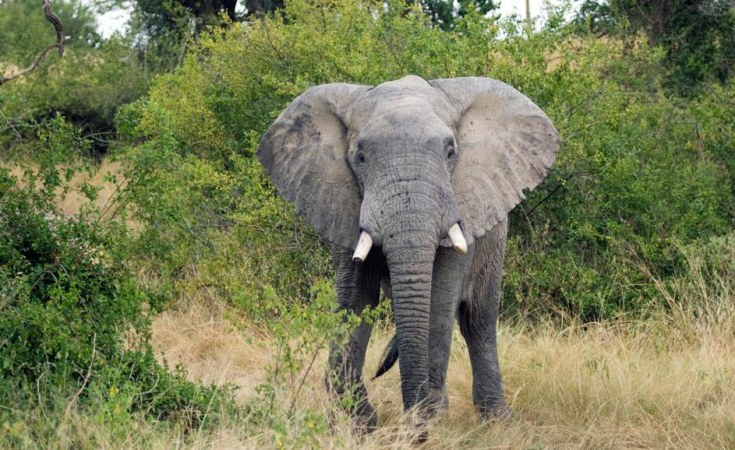African elephants call each other and respond to unique names, a phenomenon that is rare among wild animals, new research shows.
The names can be heard in low rumbles that carry long distances across the savanna. Scientists say that naming behavior is more common in animals with social structures and families that separate and reunite.
"Elephants are incredibly social, always talking and touching each other -- this naming is probably one of the things that underpins their ability to communicate to individuals," said co-author and Colorado State University ecologist George Wittemyer, who is also a scientific adviser for the nonprofit Save the Elephants.
Humans have naming procedures, and so do dogs, baby dolphins and parrots. Naming species can also learn to pronounce unique new sounds during their lives.
"Just like humans, elephants use names, but probably don't use names in the majority of utterances, so we wouldn't expect 100%," said study author and Cornell University biologist Mickey Pardo.
Biologists in the study, published in Nature Ecology & Evolution, used machine learning to detect naming in a sound library from Kenya's Samburu National Reserve and Amboseli National Park. The researchers also followed elephants in jeeps to look for calls and responses. A mother might call out to a calf or a matriarch to a straggler trailing behind the group.
Analysis of the audio data by a computer model predicted which elephant was being addressed 28% of the time, likely due to the use of its name. The model only accurately labeled 8% of calls when given meaningless data. The rumbles are below the range of human hearing, and scientists do not know which aspect of the vocalization is the name.
Elephants responded more energetically to recordings that contained their names, flapping their ears and lifting their trunks.


